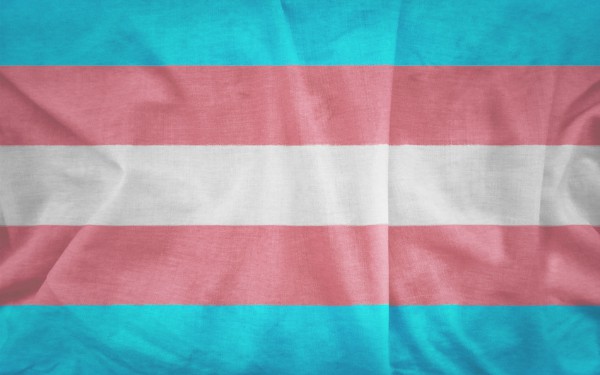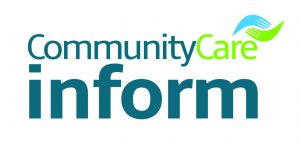
 This article comprises of excerpts taken from a new podcast on Community Care Inform about social work with transgender people. The full podcast includes discussion of misconceptions about what it means to be trans and discrimination trans people can face, and is free to access on soundcloud and iTunes. Inform subscribers can access supporting resources including a written transcription and key points from the episode on Inform Children and Inform Adults.
This article comprises of excerpts taken from a new podcast on Community Care Inform about social work with transgender people. The full podcast includes discussion of misconceptions about what it means to be trans and discrimination trans people can face, and is free to access on soundcloud and iTunes. Inform subscribers can access supporting resources including a written transcription and key points from the episode on Inform Children and Inform Adults.
The experts
Julie Fish: Chair of social work and health inequalities at De Montfort University, Leicester.
Matty Donaldson: Youth work and peer support coordinator at The Proud Trust, a charity that supports LGBT+ young people.
Definitions
Matty Donaldson
- The definition that we would use for ‘trans’ is a word that someone might use to describe themselves if their gender is in some way different from the gender they were assigned.
- So we know that at the moment when we’re born we’re assigned a sex. Based on that, we’re assigned a gender, and then we’re generally brought up in particular ways so that we kind of stick with that gender or that gender feels right for us.
- And for some people that’s true, that this is right for them. And the word that we would use to describe those people would be ‘cisgender’ or just ‘cis’ for short. But then there’s people like me and other people who grew up and we don’t feel like the gender we were given, and so we would maybe use the word ‘trans’ or ‘transgender’ about ourselves.
I always like to give a bit of a caveat to when we do definitions, because I think much as definitions are really useful to get us all on the same page, a lot of these words will mean different things to different people, and so I think it’s really important that we don’t get too fixated on trying to come up with a perfect definition, but allow a little bit of flexibility.
What does good social work with trans people look like?
Julie Fish
- The starting point is inclusive social work education, that case studies include the lives of trans people, that there are inclusive environments in social care settings, that the representation, the approaches, recognise trans people.
- When we’re thinking about models of social work practice or models of assessing parenting or children in need, that we use assessment tools that are relevant to trans people’s lives.
- That if you are a practitioner and you make a mistake that you acknowledge it and learn from it, and that you critically reflect on some of the discourses that you hear in society and that you interrogate the views of others, especially when they’re transphobic but at other times too, rather than accepting them as true.
- I think training’s really important, but I think people have to buy into really good quality training. They need to give themselves a full day and then they also need to give themselves space to go away and reflect on what they’re going to do with what they’ve just learnt in that training, and put some of the things they’ve learnt into action.
- I often say that if you’re good at working with young people you’re probably pretty good at working with trans young people, because a lot of the skills are transferable in terms of listening to them, respecting them, letting them lead conversations, and giving them space to talk about themselves. That’s really important, not to just forget all that when you’re working with a trans young person, because you feel like it’s a completely different set of skills. So asking them what name they want to use, asking them what pronouns they want to use, and respecting that and giving them the space if they want to explore gender to do that. If they’re not interested, they’re not interested.


 Assistive technology and dementia: practice tips
Assistive technology and dementia: practice tips  A trauma-informed approach to social work: practice tips
A trauma-informed approach to social work: practice tips 




 Find out how to develop your emotional resilience with our free downloadable guide
Find out how to develop your emotional resilience with our free downloadable guide  Develop your social work career with Community Care’s Careers and Training Guide
Develop your social work career with Community Care’s Careers and Training Guide  ‘Dear Sajid Javid: please end the inappropriate detention of autistic people and those with learning disabilities’
‘Dear Sajid Javid: please end the inappropriate detention of autistic people and those with learning disabilities’ Ofsted calls for power to scrutinise children’s home groups
Ofsted calls for power to scrutinise children’s home groups Seven in eight commissioners paying below ‘minimum rate for home care’
Seven in eight commissioners paying below ‘minimum rate for home care’
 Facebook
Facebook X
X LinkedIn
LinkedIn Instagram
Instagram
I’m a child protection social worker. My colleagues are mostly women. Our clients are mostly women. Men are over represented in management in social work. The men we come into contact with in our working life are very often perpetrators of sexual and domestic violence. There is a power imbalance and that is because sex matters.
Sex is not assigned at birth. Assign means to a lot or allocate. There are a very small number of intersex conditions that require sex to be assigned. For the rest of us we are observed at birth to be male or female. And that biological sex leaves women at a disadvantage to men, and that is particularly true in the lives of the women (and children) we work with.
Cis implies that I somehow accept a social construct of what it means to be a woman. I don’t. I’m a woman. I have no feeling or essence that makes me a woman. The idea that there is some inate quality that makes us male or female seems regressive.
To say we shouldn’t be fixated on words seems naïve. Words have power. We use them in assessments, care plans, court statements and our conversations. We define harm using words. We name and make meaning of very difficult situations using words. Quite often we write and talk about situations most people prefer to avoid; that avoidance contributes to harm and prevents change. We use words carefully because they’re important. Words can help people to see and understand situations that can sometimes feel beyond comprehension.
Social work case studies include all types of people. The scenarios and people in them have to be interrogated. Social work involves saying the unsayable, questioning in a way that can feel uncomfortable. Sometimes trans people in case studies will be victims and sometimes perpetrators of harm. That could not be seen as “transphobic” as that would be to the detriment of good social work (in fact would make it impossible)
I will listen to the full pod cast with interest.
Absolutely bang on, R.V
Spot on.
Superb comment RV
Sex is NOT assigned at birth. Sex is observed at birth, or sometimes before, inutero.
Society describes clear sex roles and sex expectations in both sexes. This is known as sexism.
It is sexism that demands women are feminine, and men are masculine. This is obviously ridiculous, sexist nonsense.
Very rarely a person may have gender dysphoria- this is a very rare condition . Sometimes symptoms are alleviated by medical transition, sometimes not. If they have a GRC they can be treated legally as the opposite sex in some situations.
People with a GRC are a protected characteristic in Equality 2010. However this does not mean their right to the opposite sexes spaces should trump the needs of other groups (protected characteristics), such a faith, disability, sex, homosexuality etc.
Despite propaganda from organizations like Mermaids of trans children less than 1% commit suicide if they are not affirmed (GIDS).
Clear thinking RV. You bring us back to reality.
Biology is not destiny. As feminists we have campaigned so that women have choices in their everyday lives and that their capacity to give birth does not mean they are the only parent that should be involved in child rearing. Not all women are the same: some can’t have children, some don’t menstruate, others have different formations of bodily parts. So the idea of linking biology to gender identity is problematic; which bits do you choose?
But your first point buys into a common assumption that trans people are men. And it seems to imply that trans women in particular are really men. That is problematic because it denies trans people the right to self determination and to name their identities and experiences from their perspectives. Nobody else gets to do that. Self determination is a key principle of feminism.
The depiction of men that you give assumes that all men have power and they all use it in the same oppressive ways. That’s somewhat reductive. Some heterosexual cisgender men are oppressive and perpetuate male dominance. I guess I’m a bit of an idealist as I think there are now more men who are Proactive in family life. At one time you wouldn’t see a male parent pushing a baby’s pram down the street.
It’s also true that social workers work with those who are most vulnerable in society. Women who have experienced DV and other forms of physical emotional or sexual violence. They are the men that social workers come into contact with in their working lives, but there are also men who are vulnerable due to their personal characteristics eg learning disability, mental health, age.
I think we must be careful to actively take a stand against stereotyping where a whole group of people may be labelled either through mistaken assumptions or the behaviour of one member of that group. We need to listen in an open minded way and not get swept away by the charged atmosphere that has engulfed discussions over the summer.
If we are truly committed to equality for all people, we will do this work. It’s urgently needed.